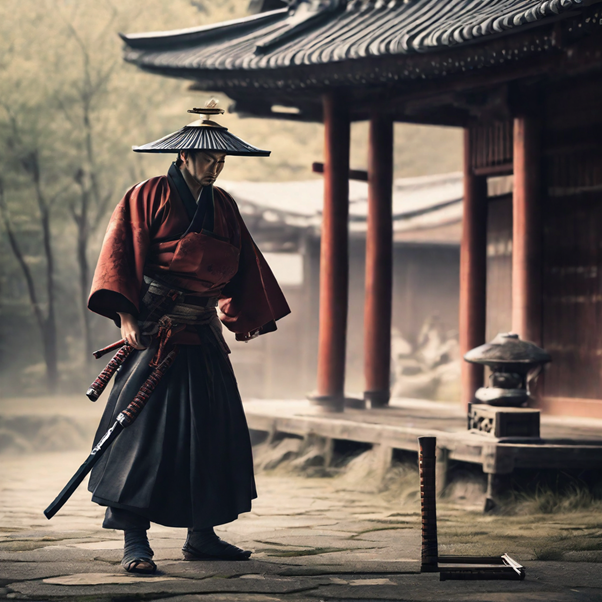One evening as Shichiri Kojun was reciting sutras a thief with a sharp sword entered,
demanding either his money or his life.
demanding either his money or his life.
Shichiri told him: "Do not disturb me. You can find the money in that drawer."
Then he resumed his recitation.
Then he resumed his recitation.
A little while afterwards he stopped and called: "Don't take it all.
I need some to pay taxes with tomorrow."
I need some to pay taxes with tomorrow."
The intruder gathered up most of the money and started to leave.
"Thank a person when you receive a gift," Shichiri added.
The man thanked him and made off.
"Thank a person when you receive a gift," Shichiri added.
The man thanked him and made off.
A few days afterwards the fellow was caught and confessed,
among others, the offence against Shichiri.
When Shichiri was called as a witness he said:
"This man is no thief, at least as far as I am concerned.
I gave him the money and he thanked me for it."
among others, the offence against Shichiri.
When Shichiri was called as a witness he said:
"This man is no thief, at least as far as I am concerned.
I gave him the money and he thanked me for it."
After he had finished his prison term,
the man went to Shichiri and became his disciple.
the man went to Shichiri and became his disciple.
~ from Zen Flesh Zen Bones
compiled by Paul Reps and Nyogen Senzaki
compiled by Paul Reps and Nyogen Senzaki


































